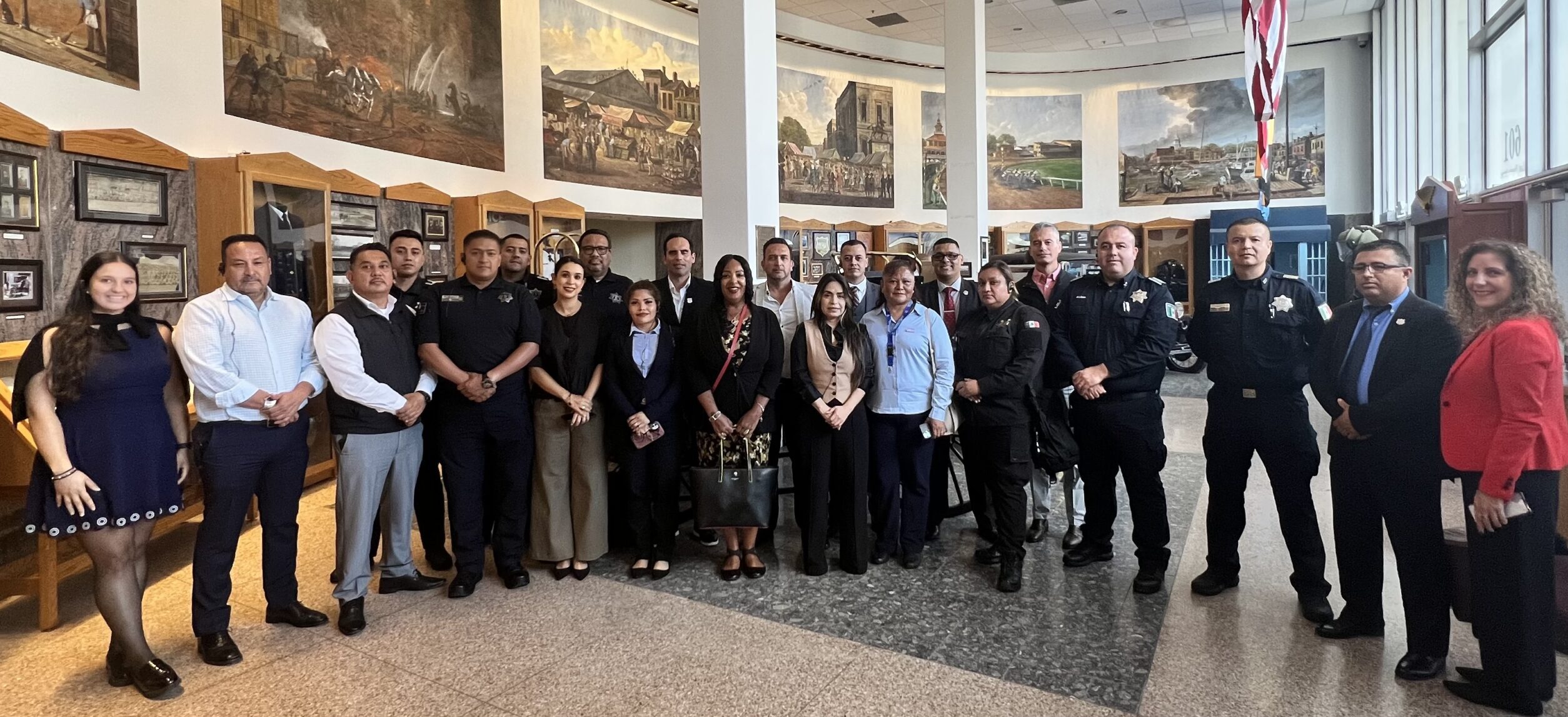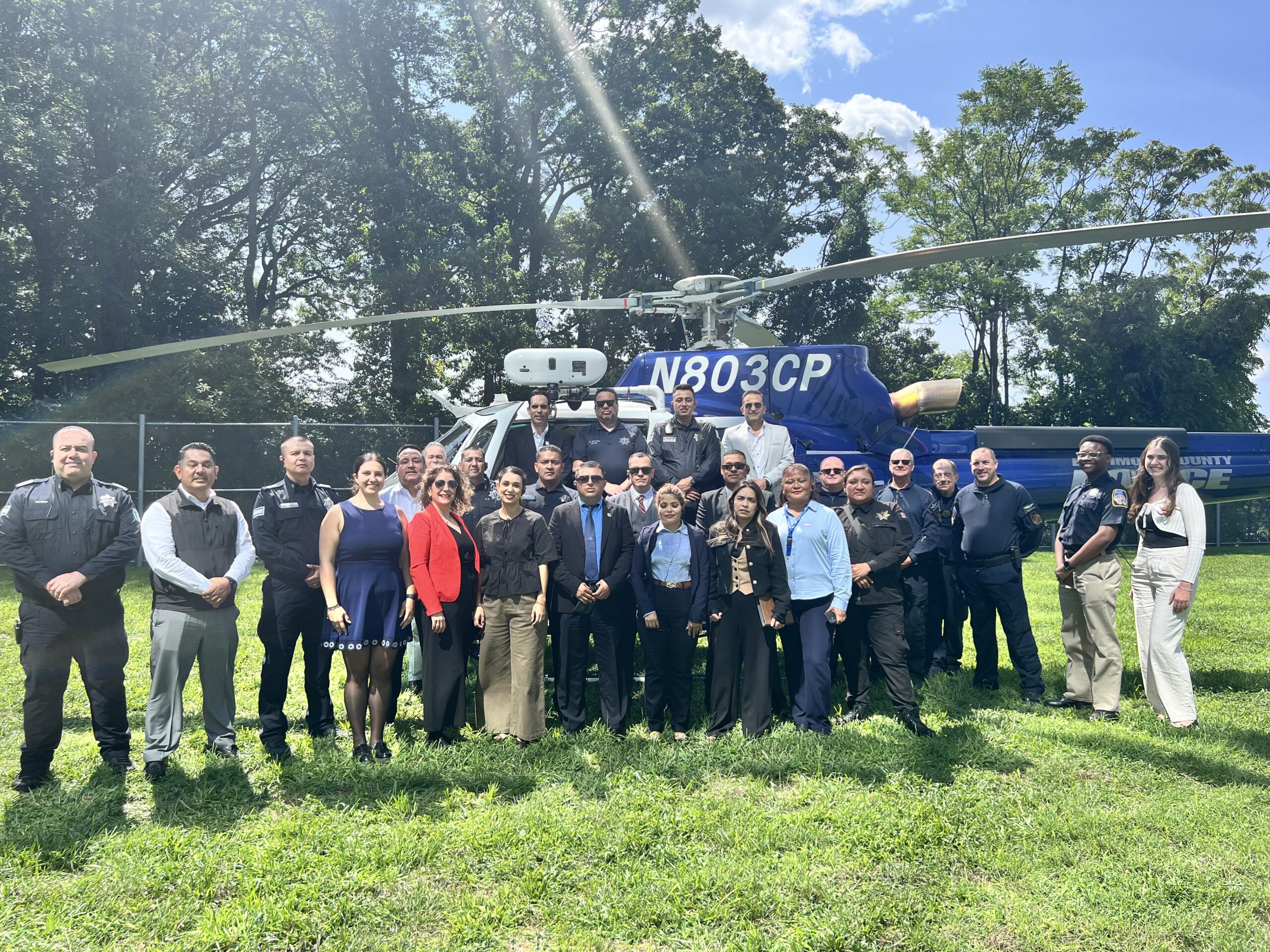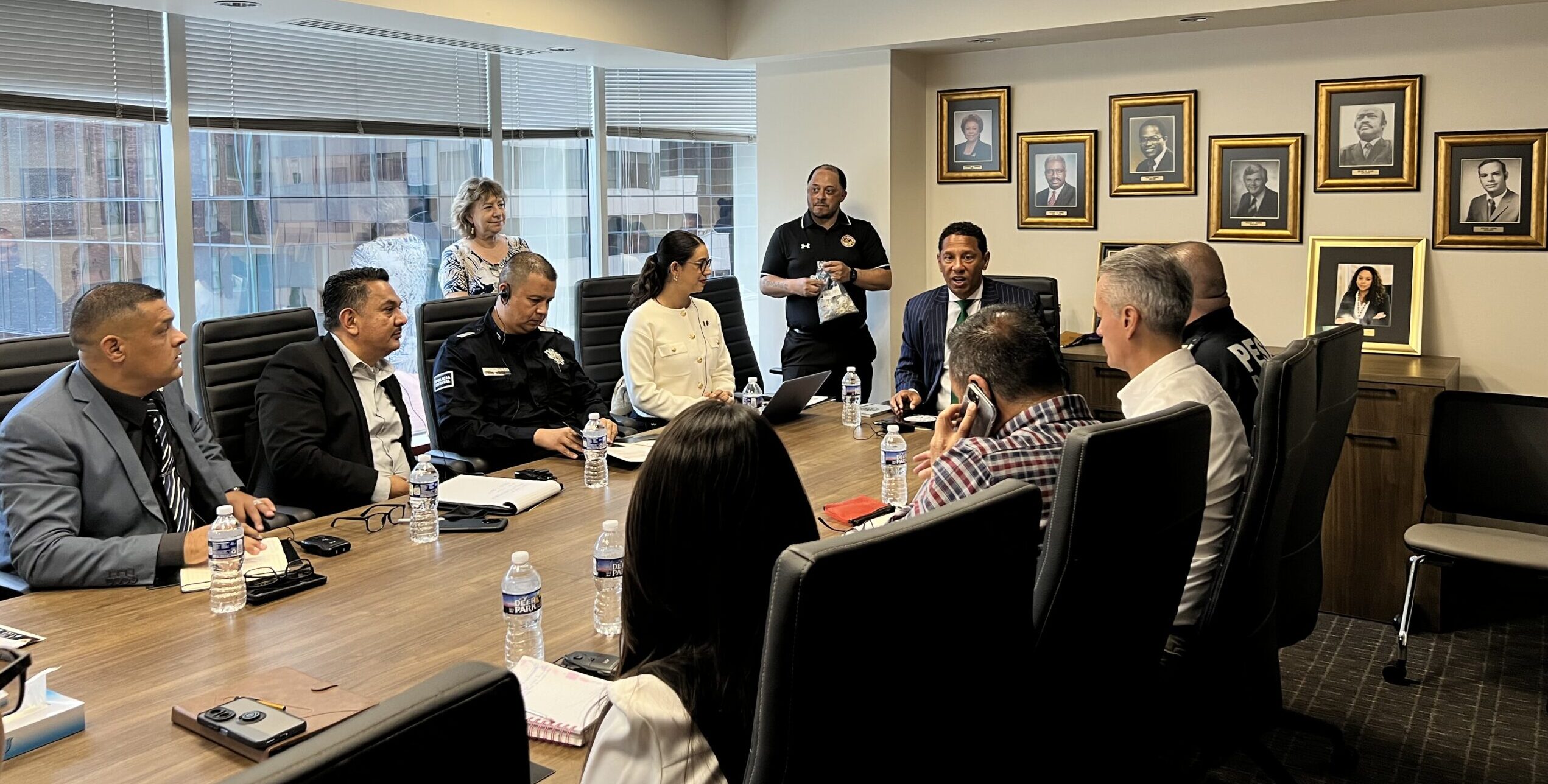By Ally Newby, Exchange Programs Intern, Global Ties U.S.

LESEP participants with the Global Ties U.S. and Baltimore Police Department representatives.
This August, Global Ties U.S. teamed up with the World Trade Center Institute to welcome Mexican law enforcement officials to Baltimore, MD as part of a Law Enforcement and Security Exchange Program (LESEP). LESEP supports U.S.-Mexico relations by bringing law enforcement professionals from across Mexico to U.S. cities for week-long study tours. The recent Baltimore program focused on building trust in the community and connected 19 participants representing police departments from nine Mexican states with local law enforcement organizations to share best practices on community outreach, accountability, and transparency in policing. The study tour began with an overview of the law enforcement agencies in Baltimore from keynote speaker Johnny L. Hughes, a retired U.S. Marshall, who addressed the city’s historical challenges with public trust. The participants then received a warm welcome from the Office of the State’s Attorney, where they learned about the Maryland judicial system and the office’s Community Engagement Unit.

LESEP participants and Baltimore counterparts pose in front of a police helicopter.
The Baltimore County and Baltimore City Police Departments presented their community engagement initiatives, including recruitment strategies and youth programs, and shared their methods for increasing accountability. One particular program that stood out to the participants was National Night Out. This annual community-building campaign brings the police and the community together, and participants were impressed by its national reach, large-scale implementation, and wide-spread success in promoting and creating police-community partnerships across the United States through innovative initiatives such as block parties and parades. Participants also had the opportunity to explore police department facilities, including museums and a close-up look at a brand-new police helicopter.
Participants discussed community outreach ideas such as youth diversion practices – programs aimed at providing community-oriented solutions to correcting youth’s behavior rather than relying on the juvenile justice system – through discussions with directors from the Mayor’s Office of Neighborhood Safety and Engagement (MONSE). MONSE representatives also highlighted the effectiveness of creative techniques such as their Peace Mobile – a community empowerment resource hub run out of a city-owned RV – for implementing a public health and holistic approach to community safety. Participants also learned about community engagement from the Baltimore City Sheriff’s Department.
After three packed days of professional programming, participants had several new ideas to consider implementing at home. Many participants shared their enthusiasm for incorporating more community-centered activities and youth programs. One Deputy Director said, “I think initiatives like Coffee with a Cop would be an easy addition, and it really could increase engagement locally.”

LESEP participants discuss community-engagement strategies with Baltimore counterparts.
Seeing how U.S. cities and states work together, some participants now wish to implement further collaboration between Mexican states for better community policing. Another participant noted, “working on these community-focused goals with other states could help accelerate our progress.” They also have new ideas for prevention programs and collaboration with local organizations like schools.
Officials in Baltimore also gained valuable insights during the study tour. Members from MONSE, for example, discussed community programs that the participants had implemented in their own regions, comparing them to Baltimore’s initiatives. The State’s Attorney’s office also asked participants to explain their own policing structure, giving the office insight into how Mexican policing and the Mexican judicial system differs from the United States.
Without this LESEP exchange, many of these law enforcement officials would not have had the firsthand opportunity to observe Baltimore community policing strategies. Touring a city with relatively low trust in the police allowed participants to learn about Baltimore’s successful strategies face-to-face, providing valuable insight into practices that could be successful in their departments, cities, and states at home.
